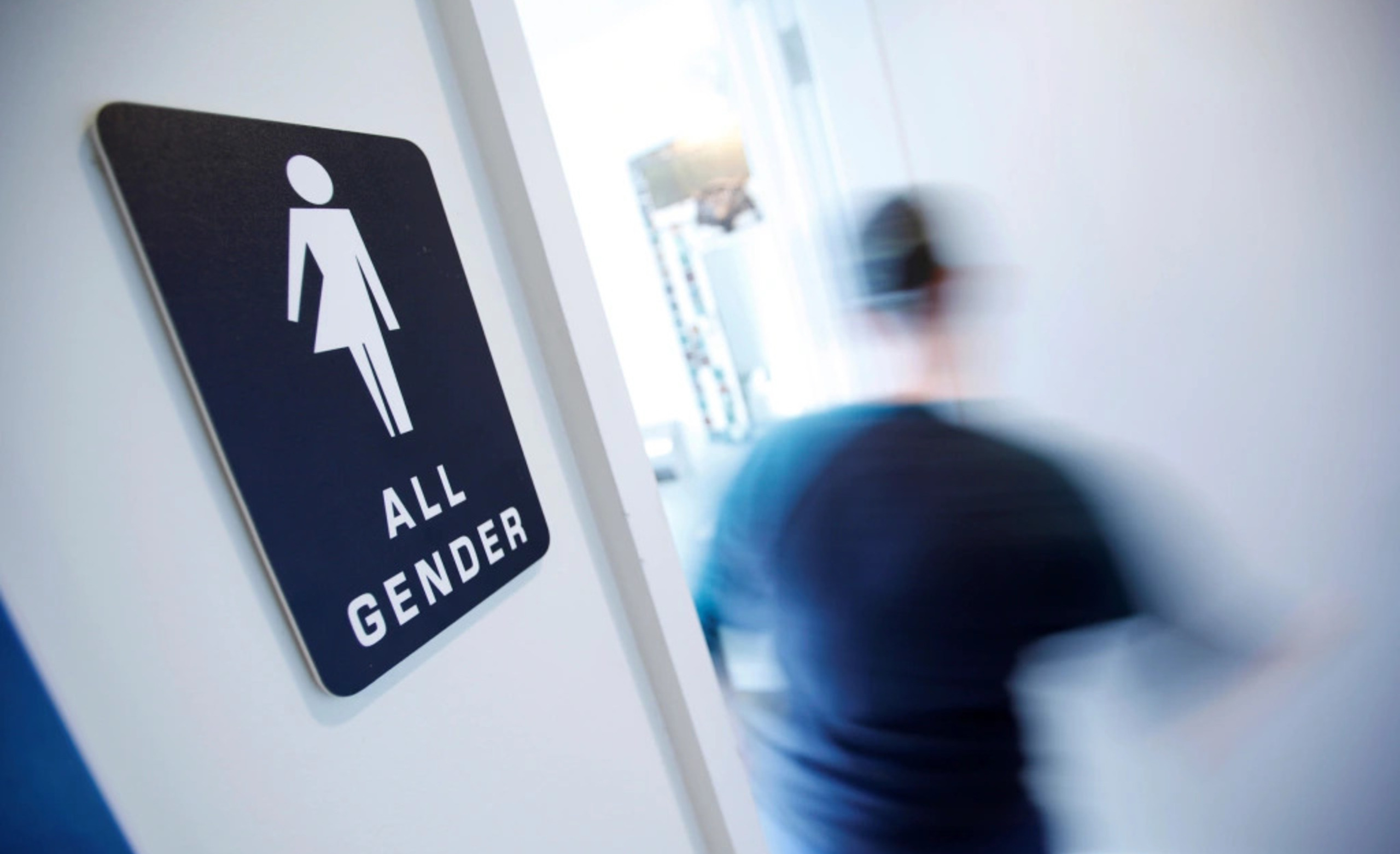
How To Survive The Woke Agenda
Welcome to our comprehensive guide on how to survive the woke agenda. The world seems to be buzzing with a new language, one that champions social justice and calls for accountability. This is the “woke agenda,” a movement aimed at raising awareness about systemic injustices and promoting equality.
While many embrace this shift, others find themselves struggling to navigate its complexities. If you’ve felt overwhelmed or confused by the rapid changes in societal norms and expectations, you’re not alone. Understanding how to survive—and thrive—in this environment is crucial.
It’s possible to engage thoughtfully without compromising your own beliefs or values. Whether you’re looking for strategies to maintain your worldview or ways to engage in meaningful dialogue, we have insights that can help you maneuver through these challenging waters with confidence and clarity.
Let’s dive into what it means to survive the woke agenda while staying true to yourself!
Understanding the Woke Agenda
Understanding the woke agenda starts with recognizing its roots in social justice movements. It emphasizes awareness about issues like racism, sexism, and inequality. The term “woke” signifies a heightened consciousness of societal injustices.
This movement seeks to challenge traditional norms that perpetuate discrimination. Advocates push for systemic changes across various sectors—education, politics, and media included. They aim to create spaces where marginalized voices are heard and valued.
However, it’s essential to note that interpretations of wokeness can vary widely. Some view it as a necessary evolution towards equality; others see it as an overreach that stifles free speech. The discourse surrounding the woke agenda is often charged with emotion because it touches on deeply held beliefs and values.
Understanding this landscape requires an open mind and a willingness to engage thoughtfully with different perspectives.
The Impact of the Woke Culture on Society
Woke culture has permeated various aspects of society, reshaping conversations around race, gender, and identity. It emphasizes social justice but can lead to polarized views. In workplaces, policies have shifted significantly.
Companies are adopting diversity training programs aimed at fostering inclusion. While this promotes awareness, it sometimes stifles open dialogue. Social media platforms amplify the woke agenda’s influence. Users often face backlash for sharing opinions that diverge from mainstream narratives.
The fear of being “canceled” can silence individual expression. Education systems are also adapting curricula to focus on equity and representation. This shift aims to create informed citizens but raises concerns about academic freedom and critical thinking skills.
Public discourse is evolving too; debates become charged with emotion rather than reasoned arguments. Navigating these complex dynamics requires dexterity in communication and a willingness to engage with differing viewpoints respectfully.
The Negative Effects of Wokeness on Society
Wokeness has become a double-edged sword in modern society. While it aims for social justice and equality, its approach often leads to division rather than unity. Many people feel alienated by the rigid ideologies associated with woke culture.
This creates an environment where open discussions are stifled. Fear of backlash discourages individuals from sharing differing opinions. Additionally, cancel culture has emerged as a prominent consequence of wokeness. Public figures lose their platforms over perceived transgressions, sometimes without due process or understanding.
This climate can breed resentment and defensiveness among those who may otherwise support social change. Instead of fostering growth through dialogue, wokeness often escalates conflicts and polarizes communities further.
In this landscape, genuine conversations about important issues become rare, overshadowed by fear and hostility. The focus shifts away from progress toward vigilance against any dissenting voice.
Strategies for Surviving the Woke Agenda
To navigate the complexities of the woke agenda, start by educating yourself. Knowledge is power. Understanding different perspectives can help you engage thoughtfully in discussions. Practice active listening.
Acknowledge others’ feelings and experiences without immediately reacting or dismissing them. This doesn’t mean you have to agree; it just fosters respectful dialogue. Set boundaries for conversations that drain your energy or compromise your values. It’s okay to walk away from topics that become toxic or unproductive.
Engage with diverse communities online and offline. Exposure to varied viewpoints enriches your understanding while allowing room for personal growth. Cultivate resilience through self-care practices like mindfulness or journaling.
These activities keep you grounded amid external pressures, helping maintain clarity in your beliefs amidst societal shifts. Remember humor can be a powerful tool. Light-heartedness often diffuses tension while promoting connection during difficult discussions about controversial topics.
Maintaining Your Own Beliefs and Values
Maintaining your own beliefs and values in today’s climate can be challenging. The pressure to conform often feels overwhelming, but staying true to yourself is essential for personal integrity. Reflect on what matters most to you.
Take time to examine your core principles and understand why you hold them dear. This self-awareness will serve as a foundation when navigating outside influences. It’s important to engage with differing viewpoints respectfully.
Listening does not mean compromising your beliefs; it simply enriches understanding while affirming your stance. Surround yourself with people who share or respect your values. A supportive community can provide strength during moments of doubt or conflict.
Remember that it’s okay to express disagreement without hostility. Healthy discussions promote growth and clarity, allowing everyone involved the space to explore their perspectives freely.
Social Awareness and Mental Well-Being
Navigating social awareness can be overwhelming. The constant influx of information and debates can take a toll on your mental health. It’s crucial to recognize when you need a break. Set boundaries for your media consumption. Allocate specific times to engage with news or discussions about social issues.
This helps prevent feelings of anxiety or burnout. Engage in activities that promote relaxation and joy. Whether it’s reading, exercising, or spending time with loved ones, prioritize what makes you feel good. Practicing mindfulness is key.
Simple breathing exercises can help ground you during heated conversations or challenging topics. Remember, being socially aware doesn’t mean sacrificing your peace of mind. Balance is essential for healthy engagement in today’s complex world.
Navigating Difficult Conversations and Differences in Opinions
Navigating difficult conversations can feel daunting. It’s essential to approach discussions with an open mind. Listening actively establishes a respectful tone. When opinions clash, avoid defensive reactions. Instead, ask clarifying questions.
This shows you’re genuinely interested in understanding the other person’s viewpoint. Sharing your perspective matters too, but timing is key. Choose moments when emotions are less charged for better receptiveness.
Use “I” statements to express how you feel without placing blame. For example, say “I believe…” rather than “You should…”. This technique helps reduce tension and fosters constructive dialogue. Remember that it’s okay to agree to disagree sometimes.
Not every conversation needs resolution; mutual respect is often enough to bridge divides in opinion while maintaining relationships intact.
Standing Up Against Injustice
Taking a stand against injustice is commendable, but it’s crucial to navigate this landscape carefully. Many people find themselves torn between fighting for what’s right and avoiding the pitfalls of cancel culture.
Instead of aiming to silence differing opinions, focus on dialogue. Encourage conversations that invite understanding rather than hostility. Ask questions that challenge perspectives without resorting to personal attacks.
Empathy plays a key role here. Recognizing someone’s humanity can foster more productive discussions about difficult topics. It allows us to address issues while respecting individual experiences and beliefs.
Promoting accountability should not mean promoting fear or exclusion. Highlighting constructive criticism over condemnation helps create an environment where growth is possible for everyone involved. In essence, standing up for justice means advocating change through compassion and conversation—not shutting down those who may disagree with you along the way.
The Importance of Critical Thinking
Critical thinking is a vital skill in today’s complex world. It empowers individuals to analyze information deeply rather than accept it at face value. In the age of the woke agenda, where opinions can be polarizing, critical thinking helps separate fact from emotion.
It encourages questioning assumptions and challenging popular narratives. By applying this skill, you become more adept at recognizing biases—both in yourself and in others. This awareness fosters healthier discussions around controversial topics.
Moreover, critical thinkers are less likely to fall prey to sensationalism or misinformation. They seek diverse perspectives and understand that truth often lies somewhere in between extremes. Engaging your mind critically creates resilience against societal pressures while allowing for personal growth.
Embracing different viewpoints enriches understanding and nurtures empathy without compromising one’s core beliefs.
Conclusion
Navigating the complexities of modern culture can be challenging, especially when it comes to the so-called woke agenda. Understanding its nuances is essential for anyone looking to thrive in today’s society.
By recognizing both the impact and negative effects of wokeness, individuals can better equip themselves with strategies that uphold their beliefs while promoting constructive dialogue. Surviving this cultural landscape requires a delicate balance between social awareness and personal mental well-being.
Engaging in difficult conversations without resorting to hostility or cancel culture is crucial for fostering mutual respect. Cultivating critical thinking skills allows you to analyze situations more deeply, helping you navigate dissonance gracefully.
Your journey through these turbulent waters will shape how you interact with others and stand firm in your values. Embrace open-mindedness while remaining steadfast in your principles; it’s possible to advocate for justice without losing sight of individual perspectives along the way.
The ability to adapt will not only bolster your resilience but also contribute positively to discussions about societal issues we all face today.






